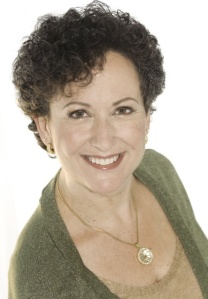Having started out much like myself as a survivor of PPD, Shoshana Bennett has done more than just dig herself out of a deep dark place – she’s risen far above it and has been reaching back to help others find their way back out and into the bright Clear Sky. In fact, Dr. Shoshana appeared just this past Tuesday on The Doctors to speak about Postpartum Mood Disorders and offered to help currently struggling moms. She serves as a true inspiration and source of caring support for those of us who advocate and are struggling through our own dark path. Thank you, Dr. Shosh, thank you.
 Would you share a little bit about yourself with us?
Would you share a little bit about yourself with us?
A survivor of two life-threatening, undiagnosed postpartum depressions, now considered a pioneer in the field, I founded Postpartum Assistance for Mothers in 1987, and am a former president of Postpartum Support International. I’ve helped over 17,000 women worldwide through individual consultations, support groups and tele-classes. As a noted guest lecturer and keynote speaker, I travel throughout the US and abroad, training medical and mental health professionals to assess and treat postpartum depression and related mood disorders. I have earned three teaching credentials, two masters degrees, a Ph.D. and am a licensed as a clinical psychologist. Currently, I am working to pass legislation that helps reduce the incidence and impact of postpartum mood disorders. You can contact me through http://ClearSky-Inc.com.
I’ve written Postpartum Depression For Dummies and co-authored Beyond the Blues: Understanding and Treating Prenatal and Postpartum Depression. My latest book Pregnant on Prozac will be available in January of ’09. I’ve also created guided imagery audios that are specifically focused on helping moms take care of themselves.
How did you become focused on Postpartum Mood Disorders? What drew you in to the subject?
Out of personal experience with severe postpartum depressions (along with OCD, panic, and PTSD), it became my mission to educate. There was no help for me back in the ‘80s. When I realized there was a name for what I had gone through, I understood that my family and I didn’t have to suffer like we had. Since then, it’s been my passion to help prevent that pain and isolation in others.
As I look back at my two episodes of Postpartum Depression with OCD tendencies, I see very clearly now how they helped to mold me into the woman I am today and allowed me to develop my tenacity and increase my self-esteem. What are some of the biggest things your experience with PPD allowed you to realize? Through sharing my experience and expertise with clients and colleagues, I experience the deepest, most satisfying feelings. I know my suffering was not in vain – my purpose is to get the word out that there’s hope and that moms will recover with proper help. I get to witness my clients’ lives transforming before my eyes. They often tell me they’re happier than they were even before their postpartum depressions! I am so thankful that out of personal devastation came this glorious path.
As a mom, what have you found to be the most energizing about motherhood? The most challenging?
As many of your readers will agree, our children are our best teachers. My kids always hold up that proverbial mirror so I will be the best person I can be. This is both what’s most energizing and most challenging. It’s not always easy to take an honest look (right?), but I truly love the personal growth involved. I find this challenge stimulating and exciting.
What are some of the biggest challenges you have faced in juggling motherhood and work?
I earned a doctorate degree when my children were quite young. Most of my studying and papers were completed between 3 and 6 in the morning, before my kids woke up, which took some discipline. Also, working from home can be easier in some obvious respects, but more challenging in others. For instance, I needed to learn to keep my work contained in my office , instead of letting it spill into my kitchen and living room. Psychologically and physically it took some practice setting and keeping those boundaries.
We often encourage mothers to remember to take time for themselves. What is it that YOU do to recharge your batteries?
In between writing chapters for my next book Pregnant on Prozac, I take walks, do yoga, and visit with friends. I travel and speak quite a bit, but these are things I can do anywhere. Almost every day I put on some great, upbeat music and I focus on my next steps personally and professionally. I’m also a huge believer in nutrition – I eat really well to support healthy brain chemistry and body functioning. Every month I also receive a wonderful massage. I encourage my clients to take good care of themselves physically, emotionally, psychologically and spiritually, and I do the same for myself.
Postpartum Mood Disorder recognition and acceptance has come a LONG way but we still have miles to go. What do you see as some of the hurdles we still have to cross?
For one, the DSM should recognize the postpartum mood disorders as their very own diagnoses. Right now, there is no actual diagnosis of postpartum depression, so it’s viewed by many well-meaning professionals as no different from any other depression. For any woman who has been depressed before having a baby, and then has ppd, she absolutely knows that ppd feels different. Also, the right questions for moms and dads need to be asked in OB and pediatricians’ offices as a standard practice. It is definitely going in the right direction, and doctors are increasingly “tuning in” to these questions and listening better to the answers given. In addition, medical doctors are also understanding that prescription medicine doesn’t always need to be the first line of treatment. Many of my clients have not needed medication once they receive a solid plan of action with natural healing.
What is your philosophy regarding your approach to Postpartum Depression? How did you develop this philosophy?
I am solution-focused, not problem-focused. I focus on wellness and healing and helping depressed women get “un-stuck” as fast as possible. I learned many years ago that women can recover remarkably quickly when they have very simple and practical steps to help them move forward.
What advice would you give to medical professionals who may come in contact with a mother who is depressed? What are some of the best things they could do for this mom? What should they not do?
Funny – I was just asked to present at a women’s conference on just this topic. It’s important to speak to this mom with care, sensitivity and respect – reassure her that she’s not inadequate, there’s nothing to be ashamed about and handle the topic very matter-of-factly, as gestational diabetes (or any other common perinatal illness) would be approached. A practitioner should not dismiss depression as “normal” or give pat advice such as, “go out on more dates and get your nails done and it should pass.” Depression needs to be taken seriously and a referral to a therapist who specializes in the field should be provided.
And last but not least, if you had a chance to give just one piece of advice to an expectant mother (new or experienced), what would you say?
Pregnant women call me all the time, since they want to prevent depression and anxiety later on in the pregnancy and also postpartum. I help them with a simple plan of setting realistic expectations, sleeping at night, eating/nutrition, and getting emotional and physical support. So much joy and happiness can be experienced (and mood disorders greatly minimized, if not completely avoided), when there’s a solid plan of action in place!


